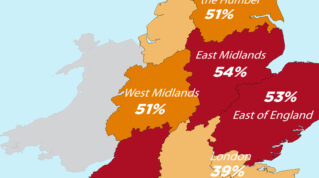The government is considering allowing councils to run their own academy trusts as ministers draw up measures to achieve a fully academised system.
Multiple sources told Schools Week the idea of having council-run MATs is under consideration as part of the government’s upcoming schools white paper, due out later this year.
It comes as the Department for Education’s top boss told MPs this week that ministers were exploring “other options” for schools that want to become academies while “holding on to some of the relationships they’ve already got”.
The government has said it wants to see all schools in multi-academy trusts. But senior civil servants this week spoke about their desire to see strong “families of schools” and fewer standalone academies.
The softening in language comes after education secretary Nadhim Zahawi also ruled out setting “arbitrary deadlines” for mass conversion last year.
As of January 2021, 78 per cent of secondary schools were academies, while just 37 per cent of primary schools held the status.
Government open to ‘different models’
One source said the government was “open to slightly different models of partnerships”, which could see maintained schools become academies on paper but still maintain a link to their local authority.
However, the white paper proposals are still at an early stage, and no date for publication has been released yet.
It is not the first time a beefed-up role for councils has been proposed. In 2018, Labour announced that if elected, it would allow councils to take back academies when their sponsors fail.

A report by the EDSK think tank in 2019 recommended that schools be allowed to join local school trusts based on the MAT model, to allow local authorities to run academies in their areas.
Report author Tom Richmond said one of the “biggest challenges” facing a push for full academisation would be the “lack of capacity in high-performing trusts”.
Current trusts are unable to absorb more than 12,000 maintained schools “within any meaningful timeframe”, he added. “It is therefore no surprise that the government may turn to high-performing local authorities to set up their own trusts to shoulder some of the burden.”
However, he said the move would only be successful if council trusts operated “at arm’s length from each local council” to reduce conflicts of interest and ensure councils champion all pupils “regardless of which school they attend”.
The Hoodinerney model proposed letting councils create arms-length spin-off trusts to place their schools, similar to the way council houses were placed in housing associations in the 2000s.
Local authorities could take 19 per cent of governor places, as they can already in MATs, but would not own them.
‘It could be a policy of the moment’
Sir David Carter, the former national schools commissioner, said there had been “a discussion about strong and effective local authorities setting up their own MATs since 2016”.
“In principle, I think it could be a policy shift that is of the moment. If the government wants to get more schools into academy trusts, the reality is that many primary schools in particular would look differently at this model to joining an existing trust.”
A National Governance Association (NGA) member survey last year found just five per cent of maintained school governors planned to join a MAT in the near future.

Carter said there were “risks around the lack of school improvement capacity”, but that these could be overcome “through improvement partnerships with other trusts”.
Trusts sponsored by local authorities would also “need to start at scale and would probably be unviable if they started too small”.
But if these sorts of issues could be addressed, “then I can see no reason why this might not work in locations where schools have good relationships with their local authority and benefit already from strong educational support”.
Questioned by MPs this week, DfE permanent secretary Susan Acland-Hood said, “One of the things we will be looking at as part of the schools white paper is whether there are other options we should be looking at for other groups of schools who might want to be taking up this opportunity but also holding on to some of the relationships they’ve already got”.
She also suggested the white paper may set out a “framework” for “what good looks like” in academy trusts, against which trusts could then be inspected at a later date.
At the moment, Ofsted can only inspect individual academies and carry out “summary evaluations” of trusts, but wants powers to directly inspect trusts themselves.
She told MPs the “first step would be to set out that framework before you started inspecting people against it.”
















Does anyone have any evidence on the amount of land which has been sold off or leased out after an academy trust has taken over a school?